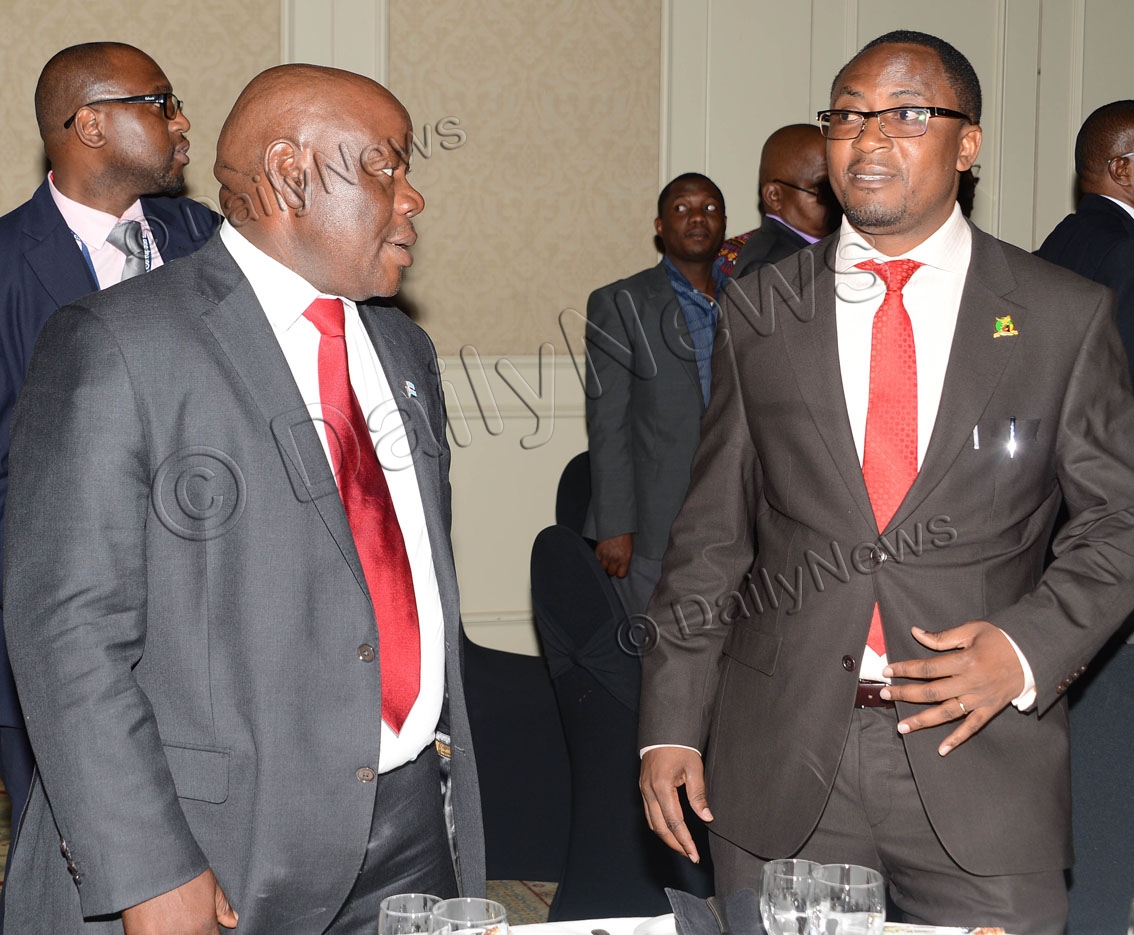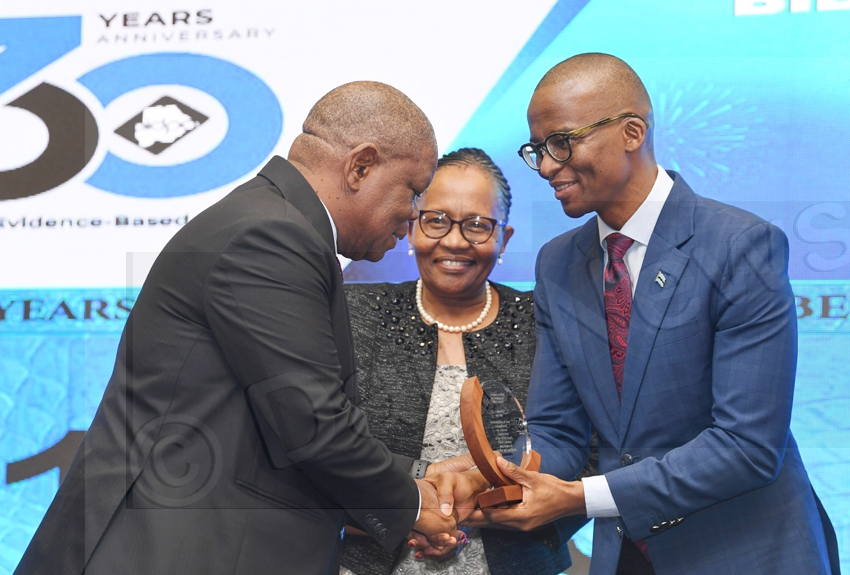Anti-poaching benchmarking good move Kgathi
20 Oct 2015
Minister of Defence, Justice and Security, Mr Shaw Kgathi has hailed Zambian authorities for benchmark on anti-poaching initiatives in Botswana.
At a dinner he hosted for his Zambian counterpart, Mr Richwell Siamunene and his delegates at the Gaborone International Convention Centre (GICC), Minister Kgathi said the benchmarking exercise came at a time when Botswana was also facing poaching problems but aggressively fighting it.
He noted that the nature of poaching had evolved in its complexity and intensity to unprecedented levels.
He added that it had depleted wildlife populations in many parts of the world and as such some species were endangered to extinction.
That, he said, therefore called for the need for collaborative efforts because there was no country that could deal with such challenges on its own.
Minister Kgathi informed Mr Siamunene, who is also Minister of Defence; that wildlife in Botswana was of paramount national economic importance as tourism was the second revenue earner for the country’s Gross Domestic Product (GDP) after diamonds.
Meanwhile, he said poaching challenges in Botswana were mainly from subsistence, commercial and of recent capturing of live predators.
He however regretted that commercial poaching was mainly done by dangerous and armed marauding groups from neighbouring countries and to this end, hence the need for Botswana to develop targeted initiatives and strategies to combat the problem.
Again, he encouraged visiting delegates to combat such crime, especially in the north of the country, where it turned violent and that the Department of Wildlife and National Parks (DWNP) formed an elite paramilitary unit in 1988 with the support of the Botswana Defence Force (BDF).
“Nonetheless, this unit was overwhelmed by the armed commercial poaching which resulted in the government revising the Anti-poaching Strategy and mobilised other law enforcement agencies like BDF and Botswana Police Service,” he said.
Collaboration of law enforcement agencies, he said brought about some level of success through joint patrols, joint investigations, intelligence information sharing, the use of informants, awareness campaigns and involvement of the communities through the Community Based Natural Resources Management (CBNRM).
Further, Mr Kgathi said as the threat intensified in its complexity and uncertainty, more law enforcement agencies were roped in to assist in the fight the menace, Directorate of Intelligence and Security Services (DISS), Botswana Prisons Service and Special Support Group (SSG).
He added that a lot was done to develop collaborative partnerships within government departments, the community and the private sector.
Nonetheless, he indicated that despite the involvement of more law enforcement agencies in anti-poaching operations, poaching activities persisted albeit in reduced intensity.
Since January 2015 to date, he said, there had been 33 poaching incidents involving Batswana and foreigners.
On the other hand, Mr Siamunene said he was optimistic that his country would put to use the knowledge and information that they acquired during their week-long stay in the country.
While in the country, the delegation also visited Kasane in the Chobe District.
He said as a country which is also endowed with wildlife, it would be prudent for them to take care of the their flora and fauna as they could be foreign exchange earner in the future because the copper mining that currently sustained the country would never be forever.
He said they chose to benchmark in Botswana because the two are neighbours and Botswana was known for her commitment to wildlife conservation and tourism development. He said Zambia should not wait for poaching activities to go out of proportion while she could easily acquire information from her neighbours on how to mitigate the problem. Ends
Source : BOPA
Author : Benjamin Shapi
Location : Gaborone
Event : Dinner
Date : 20 Oct 2015





